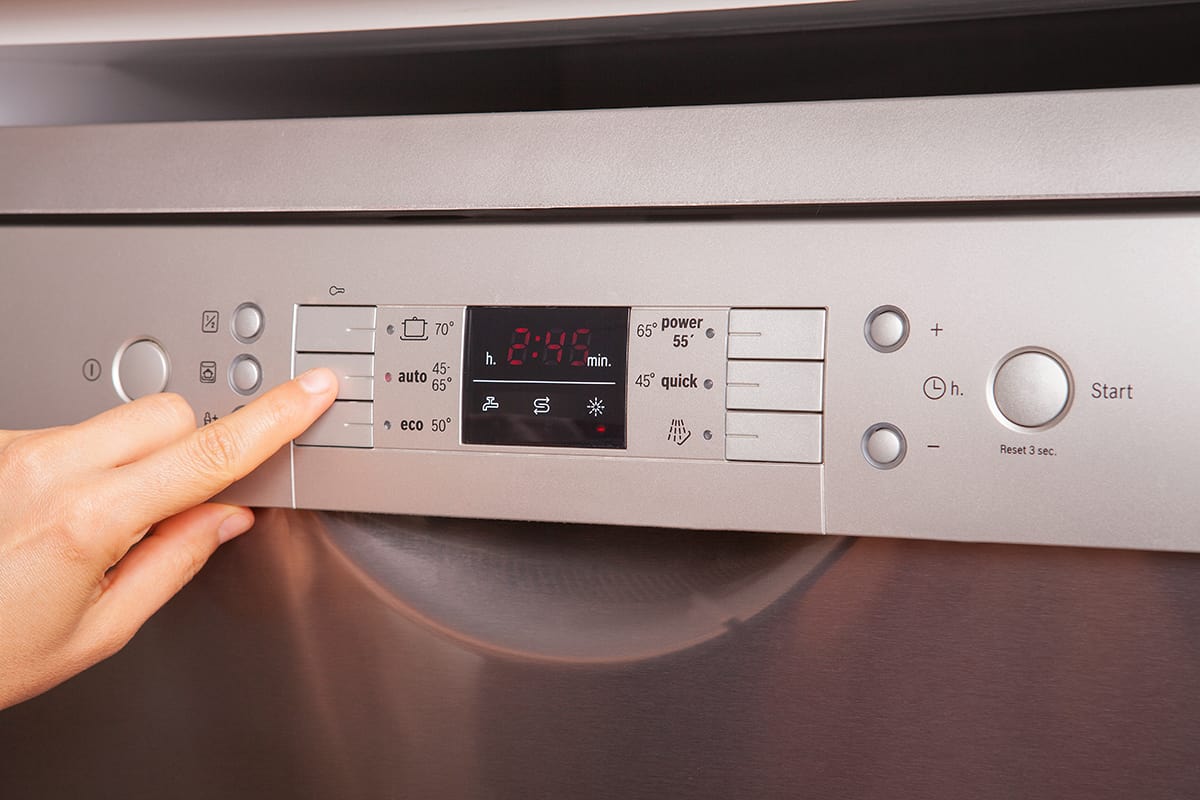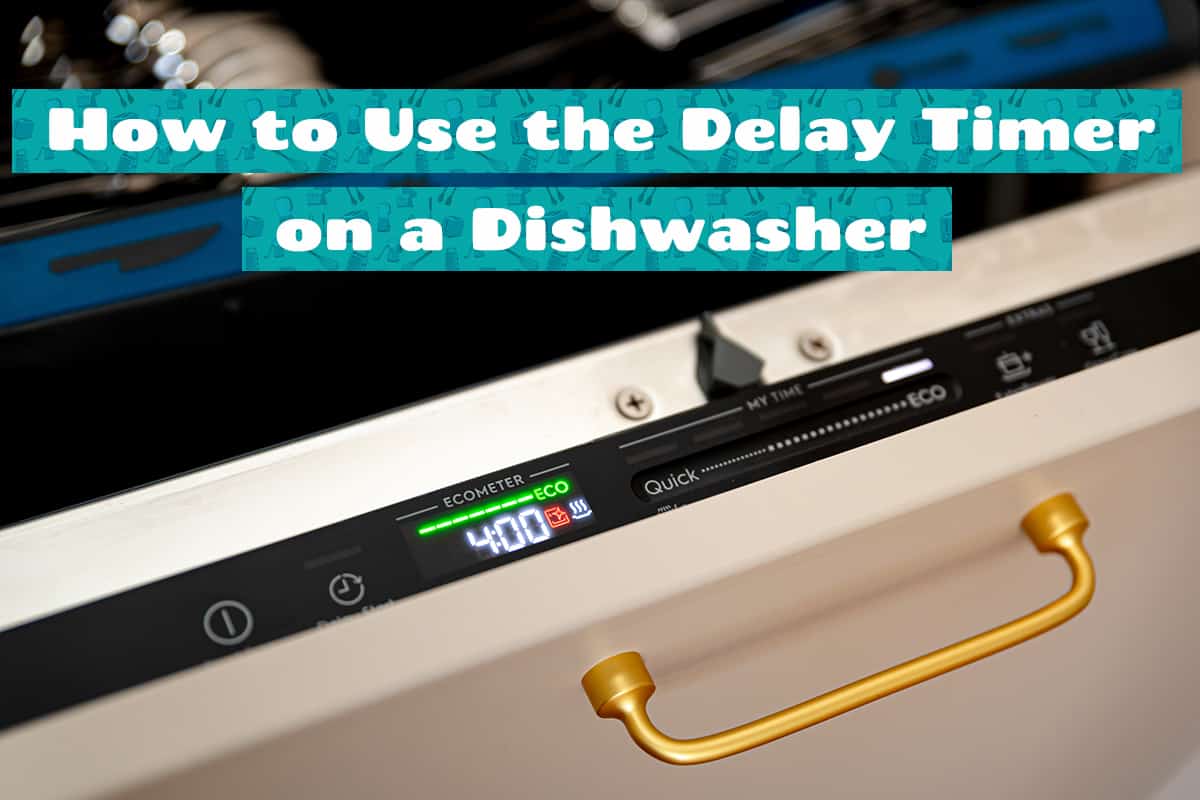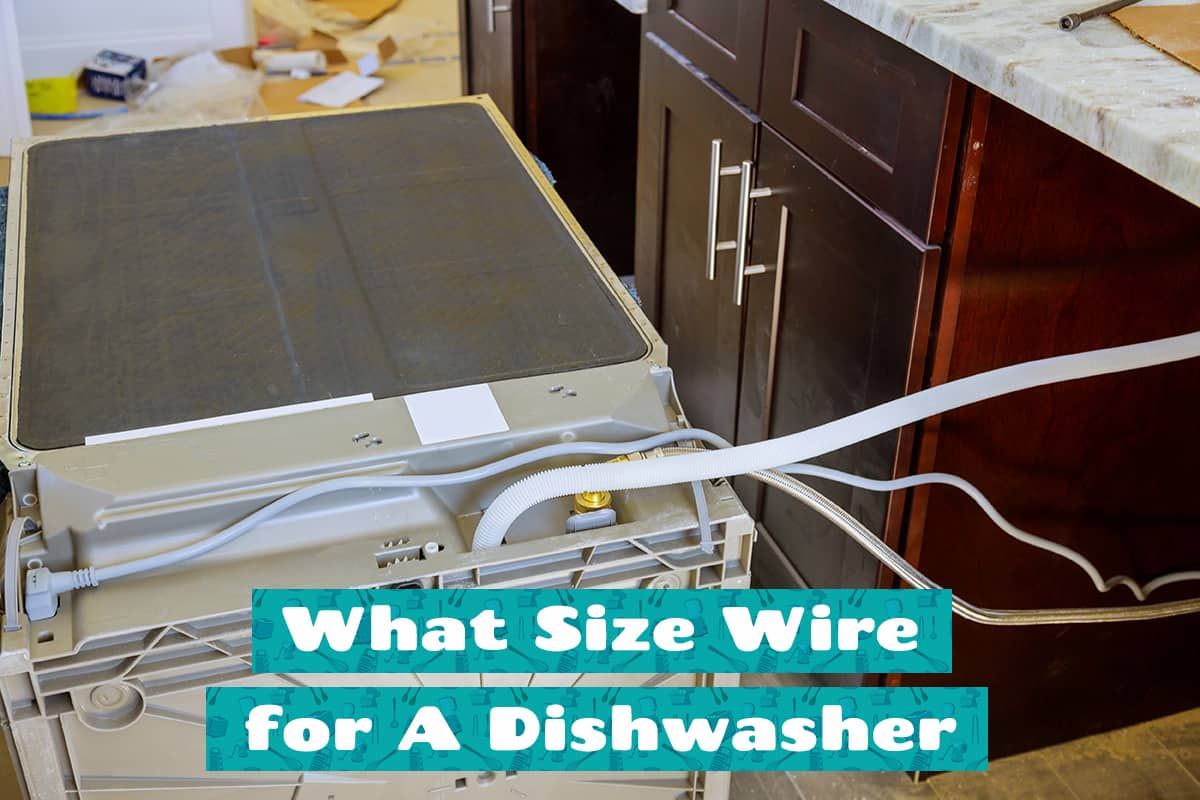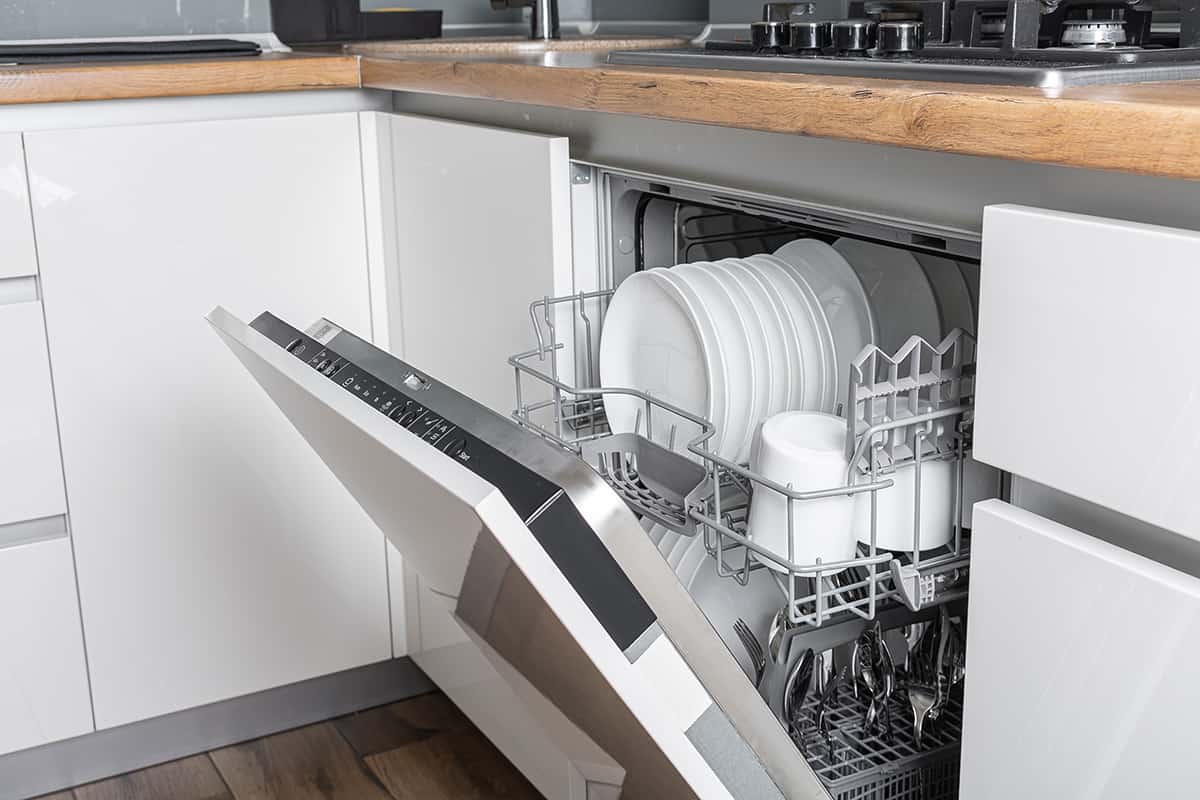A dishwasher can make your life much easier. It takes care of the job that nobody wants to do—washing dishes. However, for the best results, you will need to wash your dishes in hot water, but what if you can’t connect your dishwasher to your home’s hot water line?
It’s possible to run a dishwasher without hot water. Because cold water doesn’t dissolve solid food particles as effectively as warm or hot water, your dishes may still turn out soiled or greasy. Usually, a dishwasher’s heating coil will raise the temperature of the water to sanitizing levels.
In this guide, I’ll explain how dishwashers heat up water, and whether or not you can manually pour hot water into your dishwasher.
Can You Run a Dishwasher Without Hot Water?
If you open your dishwasher’s manual to the installation section, there’s a good chance that the booklet will tell you to connect the dishwasher to a hot water line. But what if your kitchen doesn’t have an extra hot water line to supply your dishwasher with heated water? Is it still possible to run a dishwasher?
Yes, you can run a dishwasher without hot water. Connecting your dishwasher to a cold or neutral water line may not harm your dishwasher or your dishes in any way. However, cold or room-temp water is not nearly as effective as hot water.
For instance, bacon grease melts at 80°F, while the typical temperature range for water from a water heater is at least 110°F. Cold water may cause the grease to solidify, and the chemical compounds in the dishwasher detergent may fail at loosening the grease and debris from your dishes’ surfaces.
So, while you can technically use cold or room-temperature water in a dishwasher, it’s highly recommended that you use heated water for specific wash cycles.
How Does a Dishwasher Heat Water?
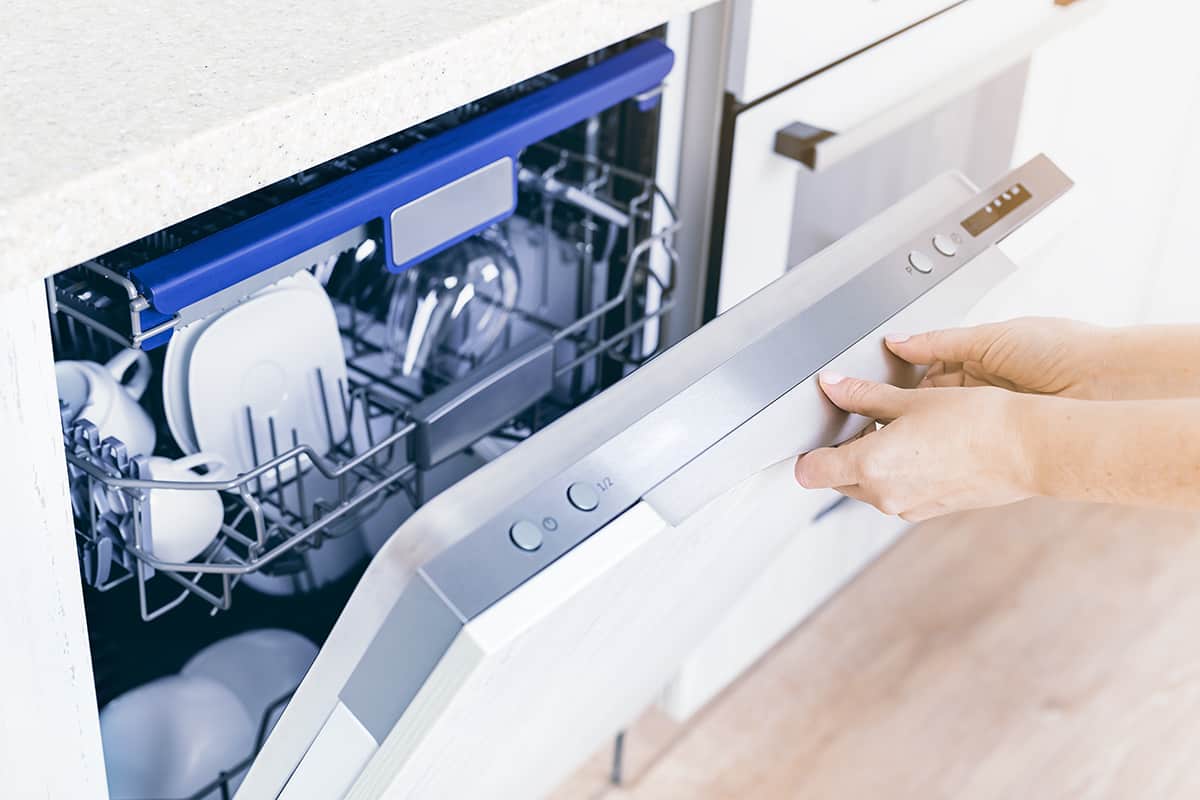
With all that said, all dishwashers, regardless of brand, will use hot water during their wash programs. This is because dishwashers come with a built-in water heater. The real question is not whether or not you can run a dishwasher without hot water but rather, where does the hot water come from?
If, for whatever reason, you cannot supply preheated water to your dishwasher, you can rely on the dishwasher’s heating assembly to do the job. The heating assembly in a dishwasher consists of a heat pump, heating coil, and thermostat.
When you supply the dishwasher with electricity, the pump will activate the heat coils, which quickly raise the temperature of the water in the tub. A thermostat constantly measures the water’s temperature so that it never goes beyond a certain threshold. On average, dishwashers will heat water to 120 to 140°F, depending on the wash cycle.
After the water is at a certain temperature, the thermostat triggers the heat pump to deactivate, shutting off power to the coils, and the dishwasher can commence the wash cycle. This cycle repeats itself during the rinsing and drying phases.
Why Should You Connect a Dishwasher to a Hot Water Line?
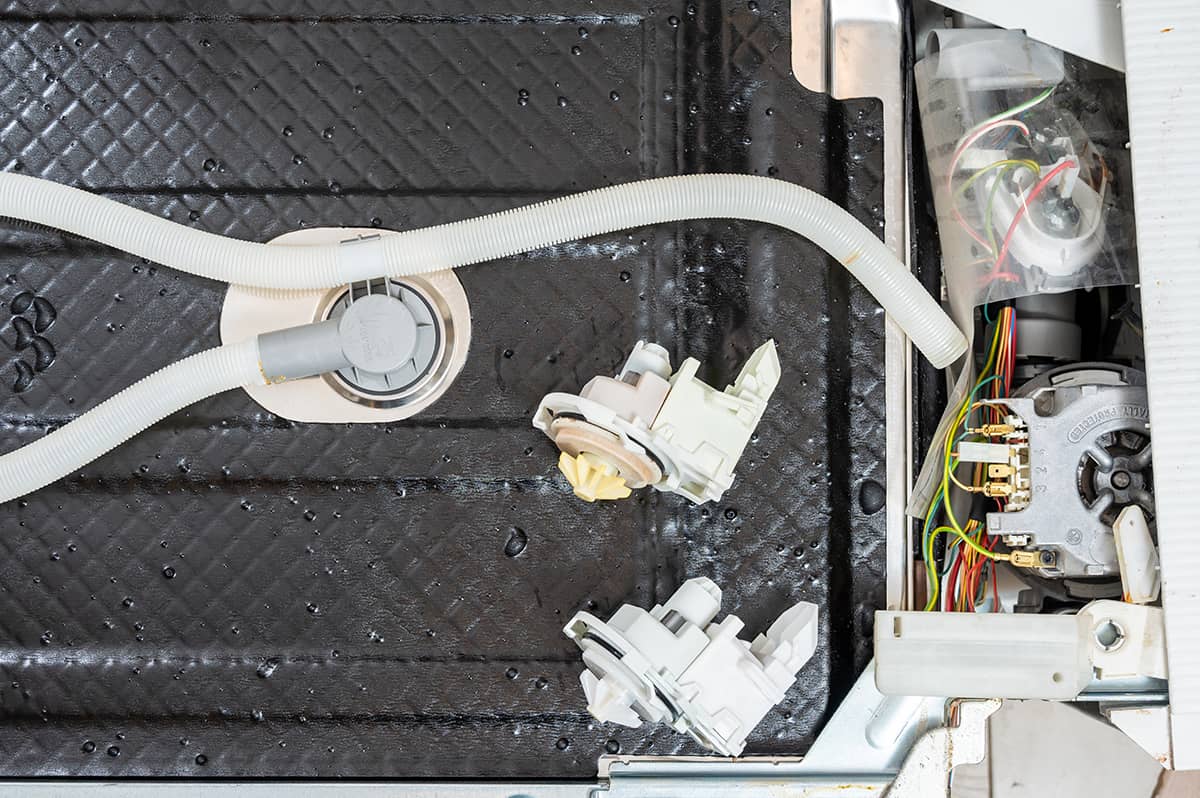
If a dishwasher has a built-in heating element, what’s the purpose of connecting the dishwasher to your kitchen’s hot water line?
Here, the main issue isn’t where the heated water comes from or even how hot the water gets. Instead, it’s whether or dishwasher’s heating element is more energy-efficient than your home’s water heater.
On average, 55% of the electricity used by a dishwasher is spent on powering the heating coil. With an average of around 1.5 kilowatt-hours used for a single normal wash cycle, that’s roughly 0.825 kilowatt-hours spent on heating around 4 gallons of water per wash.
Meanwhile, residential water heaters typically use a maximum of 2 kilowatt-hours of electricity per day. If your home’s heated water is already set to your dishwasher’s required water temperature, you could actually end up reducing energy costs.
Of course, all of these figures vary from place to place and model to model.
Can You Add Hot Water to a Dishwasher Manually?
No, you cannot, nor should you try. There are two reasons for this.
The first is that when your dishwasher is turned off, residual water inside the dishwasher will enter the drain line (unless the filter assembly is clogged, then you should check out this guide). So, all of the water you pour or spray into the dishwasher will be for naught.
On the other hand, it’s impossible to add water to an active dishwasher manually. The dishwasher latch mechanism activates the moment you start a wash cycle. Trying to force the door open may cause irreparable or costly damage to the unit, and you’ll have to spend quite a bit of time trying to install a replacement latch and microswitch.
So, if your dishwasher isn’t connected to a hot water line, just let the heating assembly do its job. There’s no reason to try and force the issue.
What Happens When You Put Freezing Cold Water in a Dishwasher?
Luckily, freezing water will not damage your dishwasher. You can even toss a few ice cubes into the dishwasher tub, and the machine will still be in working order.
The problem is that extremely cold water (slightly above freezing) will take longer for the dishwasher to heat up. The difference between borderline freezing and 120°F means the heating coils stay on for longer, consuming more electricity.
What If the Heating Element Is Broken?
If the heating element or any part of the heating assembly is defective, your dishwasher will continue to do its job. There will still be a slight pause between filling the tub with water and starting a new wash cycle, but during that time, the water will remain at its current temperature.
Again, cold or room-temp water is not as effective as hot water in cleaning dishes. What you’ll end up with is layers of grease and bits of food residue all over your dishes. No amount of dishwasher detergent will help clean your dishes any better.
However, if you pre-rinse your dishes by hand—i.e., scrub the grease and debris from your dishes prior to loading them in the dishwasher racks—the dishwasher will have an easier time washing your dishes.
Signs That Your Dishwasher’s Heating Assembly Is Broken
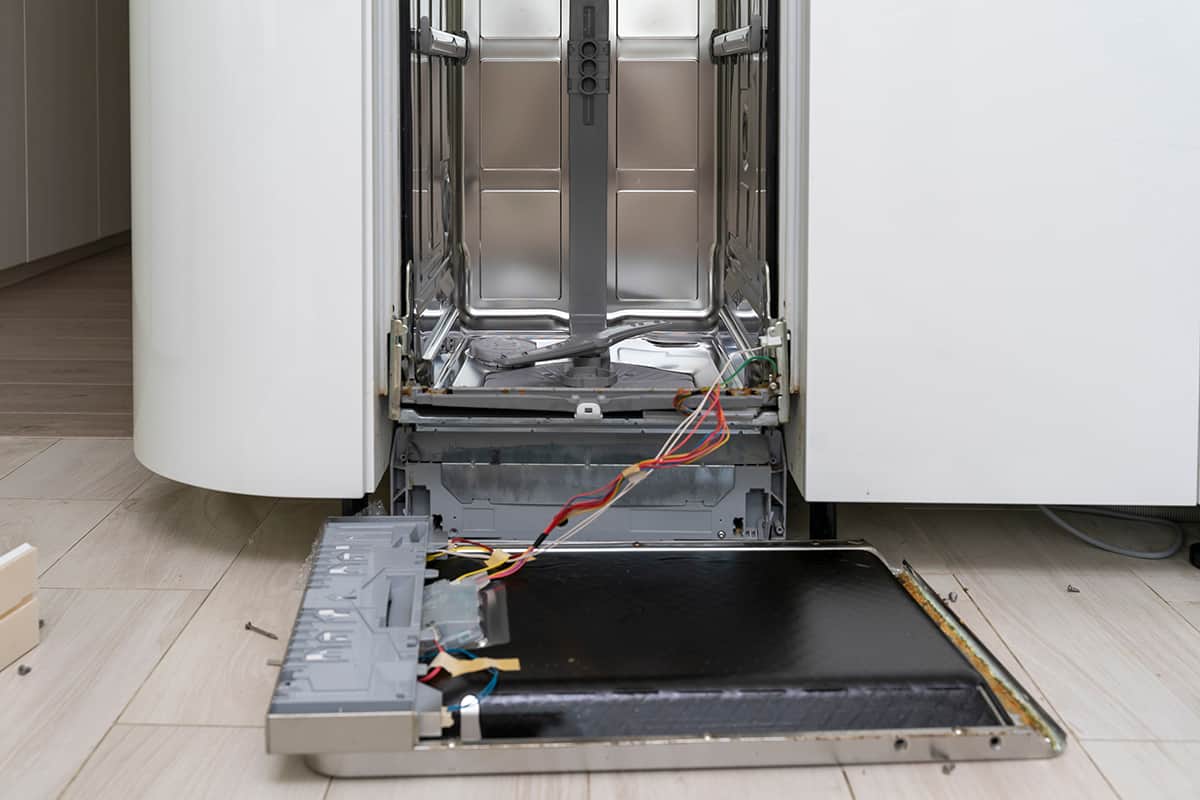
There are 3 major signs that will reveal whether or not the heating assembly in your dishwasher is defective.
No steam when you open the door
Steam is a clear sign that heated water was used during the previous wash cycle. When you open the dishwasher door, or when it opens on its own, you should see heavy clouds of steam pouring out of the door and vent ports (freestanding dishwashers). If you don’t see steam, then there’s a good chance that the heating element is busted. Or perhaps you waited too long to open the dishwasher door after the wash cycle was completed.
Food residue stuck to dishes
I said it once, and I’ll say it again—if grease and/or food particles are still stuck to your dishes after a wash cycle, then the dishwasher isn’t receiving enough heat. This could be a sign that the heating element is defective or that your hot water line is faulty.
Powder detergent clinging to dishes
Powdered dishwasher detergent dissolves in heat. Without heat, the detergent will get sprayed all over your dishes and cling to their surfaces. You’ll notice tiny white and blue spots all over your dishes, as well as the inside walls of the tub.
How Much Water Does a Dishwasher Use?
The amount of water used per dishwasher wash cycle varies between models. On average, a modern dishwasher unit will use as little as 4.2 gallons of water per wash. Meanwhile, Energy Star-certified dishwashers reduce that number to around 3.5 gallons for a complete cycle.
It’s generally advised that you limit your dishwasher’s workload to just 5 cycles per week if you want it to last longer. That adds up to between 17.5 to 21 gallons of water used by your dishwasher. This is considerably less water than you would ordinarily use to wash the same amount of dishes by hand, which is why dishwashers are great money-saving kitchen appliances.
However, any money you were hoping to save on reducing water consumption may be lost when you don’t connect a hot water line to your dishwasher. So, unless there’s absolutely nothing you can do about it, you should install your dishwasher exactly as the owner’s manual suggests.
Can Dishwasher Water Be Too Hot?
Yes, it can. Dishwashers only use 120 to 140°F water (sometimes 150°F and beyond, depending on the model) to wash and sanitize your dishes. If the water gets any hotter, you put the tub, the dishracks, and the filter assembly at risk of heat damage.
If you rely on your dishwasher’s heating element to raise the temperature of the water, then the answer is no (unless the heating assembly is defective). The dishwasher will automatically shut off the heat pump to prevent the coils from heating the water beyond the preprogrammed temperature. If your dishwasher is connected to a hot water line, lower the temperature setting on your water heater.
